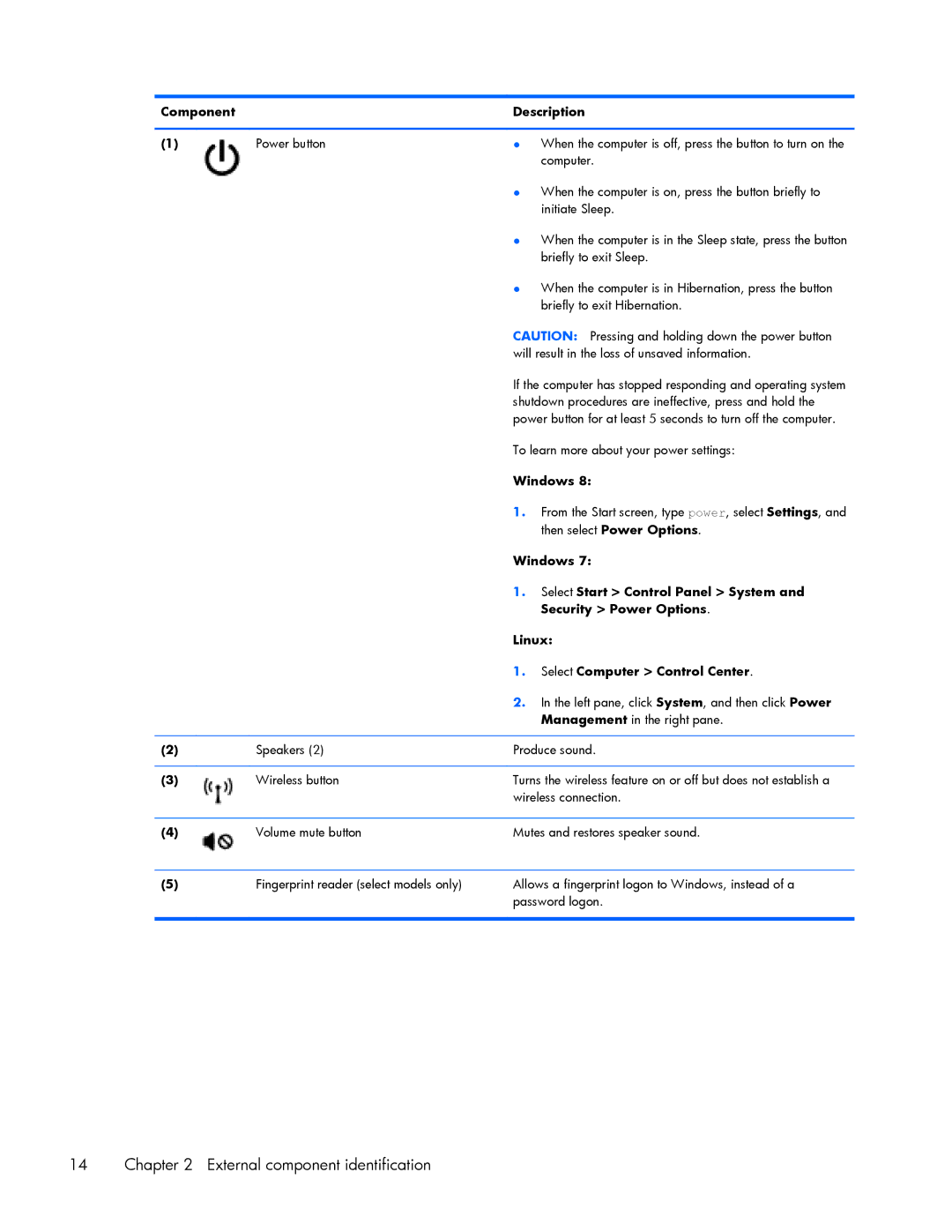
Component |
| Description | |
|
|
|
|
(1) | Power button | ● | When the computer is off, press the button to turn on the |
|
|
| computer. |
|
| ● | When the computer is on, press the button briefly to |
|
|
| initiate Sleep. |
|
| ● | When the computer is in the Sleep state, press the button |
|
|
| briefly to exit Sleep. |
|
| ● | When the computer is in Hibernation, press the button |
|
|
| briefly to exit Hibernation. |
|
| CAUTION: Pressing and holding down the power button | |
|
| will result in the loss of unsaved information. | |
|
| If the computer has stopped responding and operating system | |
|
| shutdown procedures are ineffective, press and hold the | |
|
| power button for at least 5 seconds to turn off the computer. | |
|
| To learn more about your power settings: | |
|
| Windows 8: | |
|
| 1. | From the Start screen, type power, select Settings, and |
|
|
| then select Power Options. |
|
| Windows 7: | |
|
| 1. | Select Start > Control Panel > System and |
|
|
| Security > Power Options. |
|
| Linux: | |
|
| 1. | Select Computer > Control Center. |
|
| 2. | In the left pane, click System, and then click Power |
|
|
| Management in the right pane. |
|
|
| |
(2) | Speakers (2) | Produce sound. | |
|
|
| |
(3) | Wireless button | Turns the wireless feature on or off but does not establish a | |
|
| wireless connection. | |
|
|
| |
(4) | Volume mute button | Mutes and restores speaker sound. | |
(5)Fingerprint reader (select models only)
Allows a fingerprint logon to Windows, instead of a password logon.
14 | Chapter 2 External component identification |
